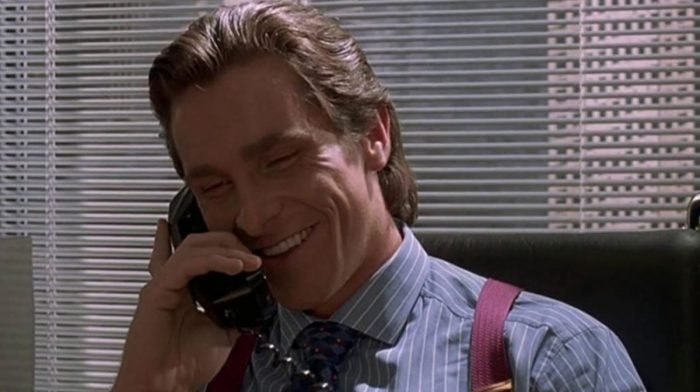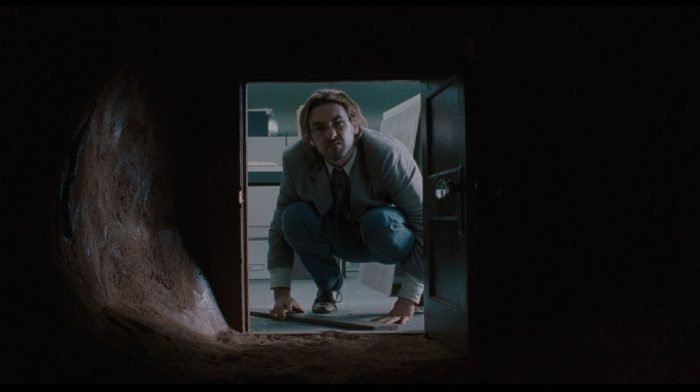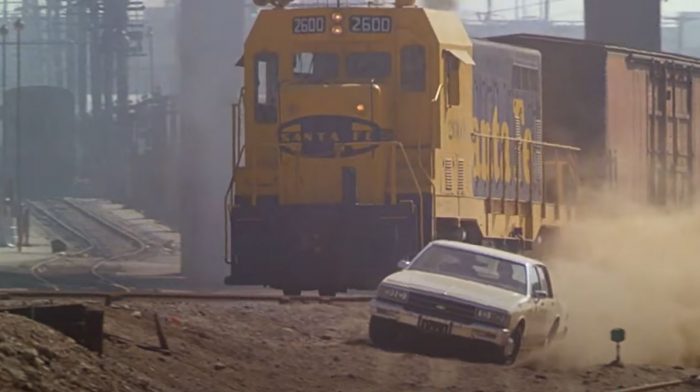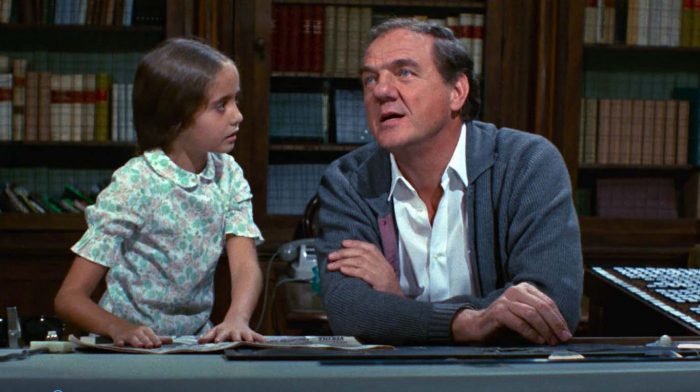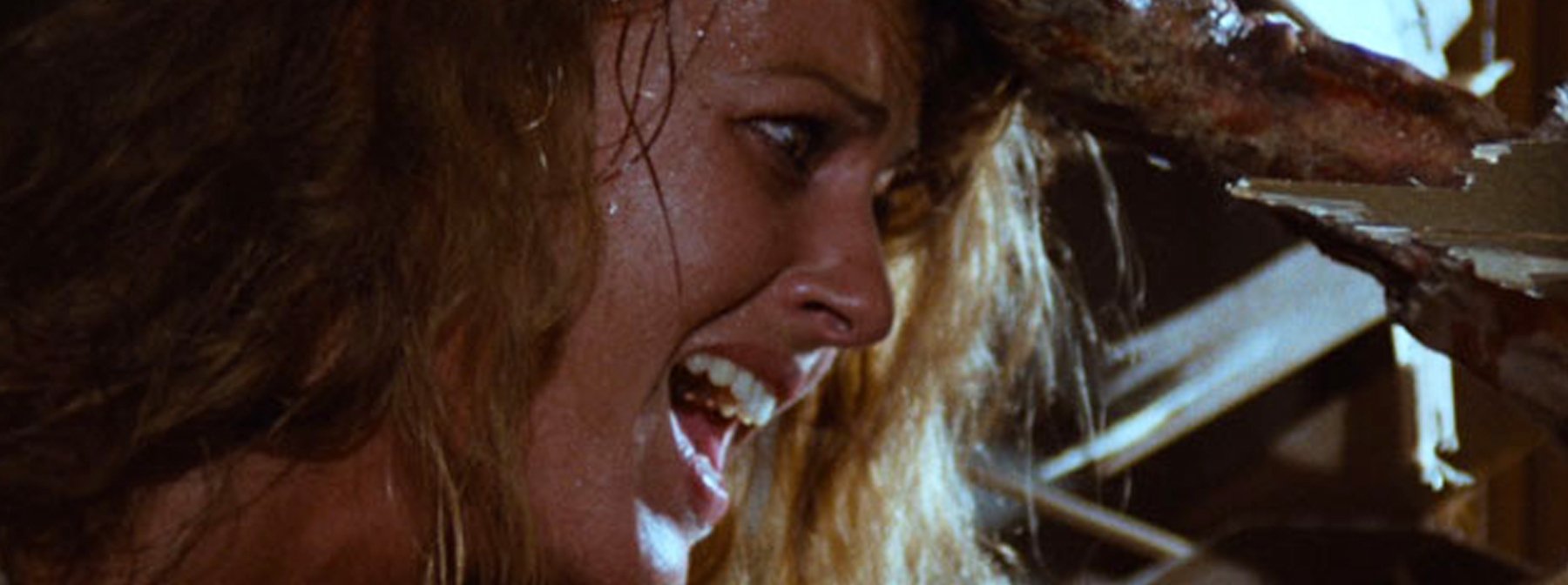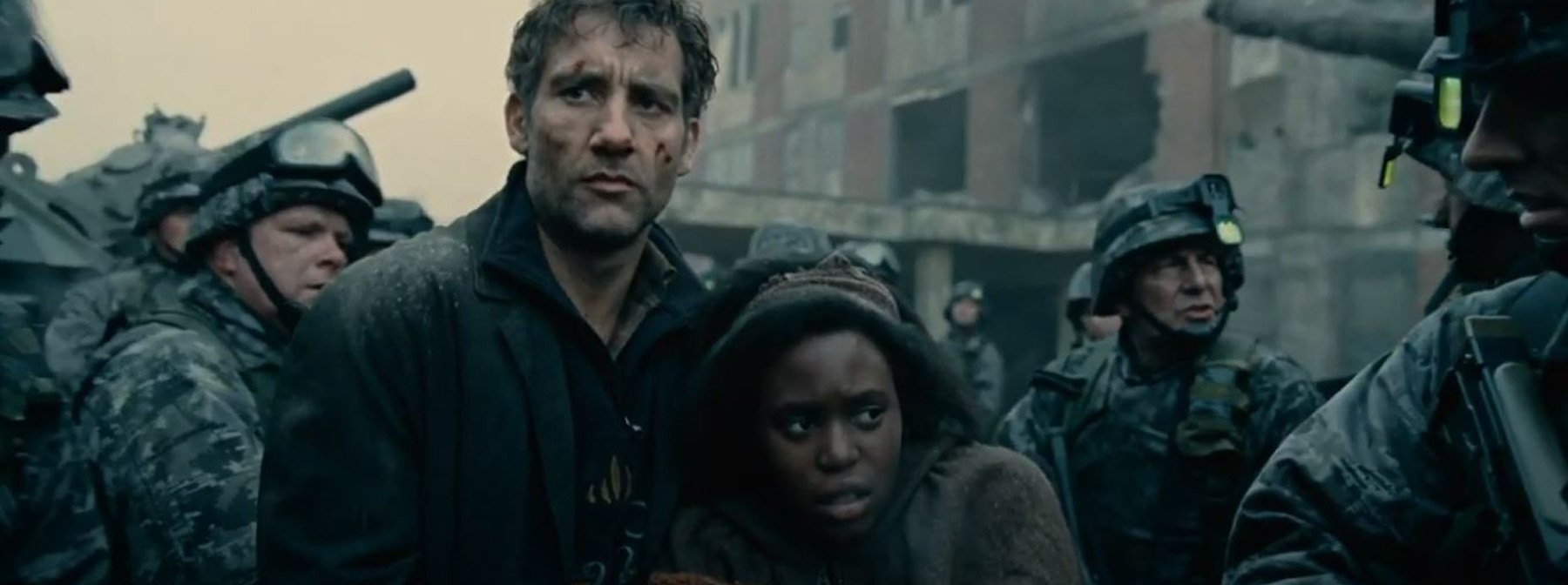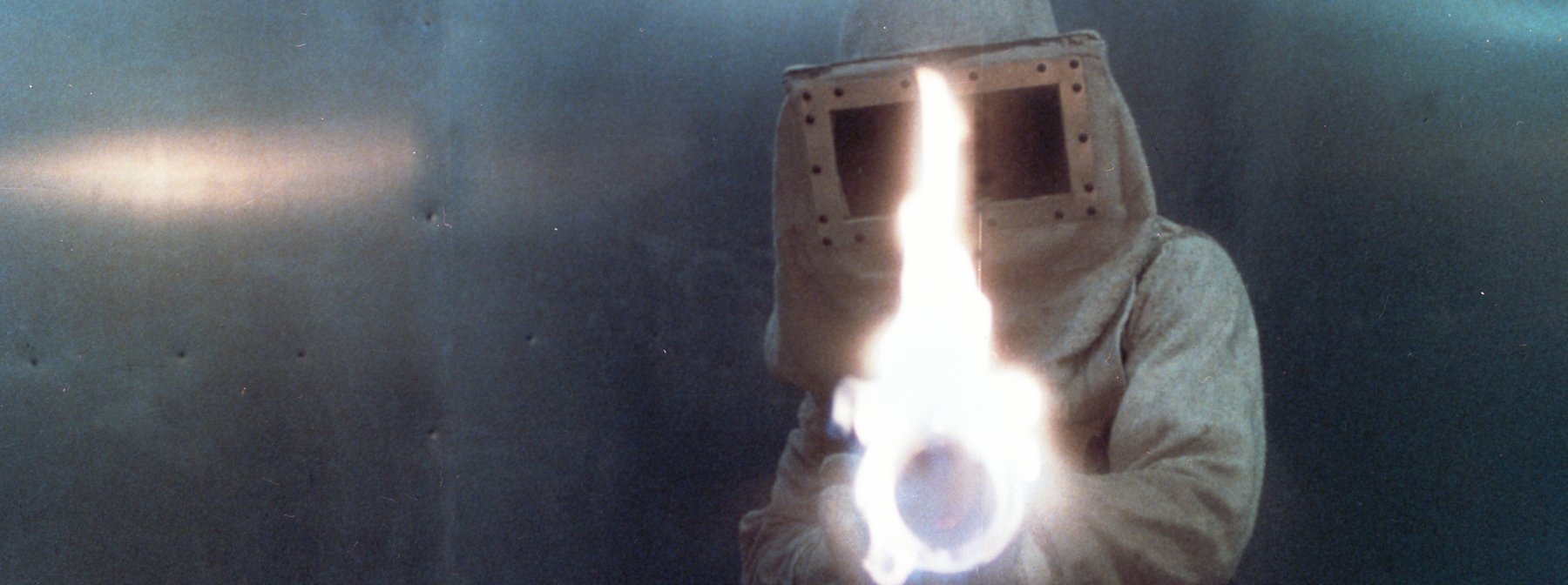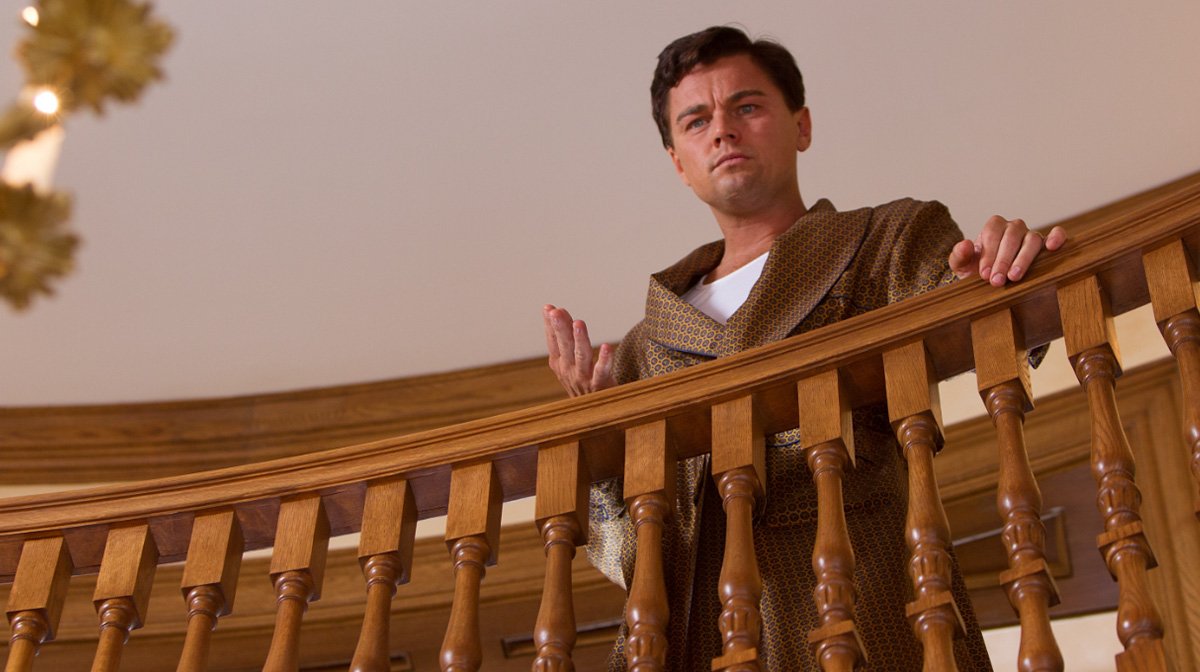From the good, the bad to the ugly, the humble remake stands steadfast and firm right at the heart of horror cinema. To celebrate ARROW’s release of Dennis Iliadis’ The Last House on the Left, we’ve put together a list of ten of the best horror remakes that honour, re-examine and sometimes even improve on their source material.
The Last House on the Left (2009)
In an era saturated with remakes, Dennis Iliadis’ The Last House on the Left stands out as a particularly effective example of story-retelling done right. Wes Craven’s 1972 exploitation original (it itself a reimagining of Ingmar Bergman’s The Virgin Spring) is one of the quintessential films of the controversial ‘rape revenge’ genre, so remaking it was always a risky choice. By stripping the original of all its black comedy, Iliadis instead presents a far bleaker take on a tale that’s already about as disturbing as it gets. Grisly and mean-spirited in that uniquely ‘00s way, The Last House on the Left feels unique in the ‘torture porn’ era by being less focused on hardcore gore and more focused on the ethics and psychology behind the violence.
Suspiria (2018)
With a film as iconically stylish as Dario Argento’s neon-drenched Suspiria, any attempt to recreate the aesthetics would simply have fallen flat. Wisely, Luca Guadagnino’s 2018 reimagining of the witchy tale doesn’t dare. Instead, Suspiria brings a more muted (although equally as stylish) palette which – along with the political themes of a post-war Germany – lends the film an even darker tone. With stand-out
performances from Tilda Swinton (and her prostheticed alter ego Lutz Ebersdorf), Dakota Johnson and scream queen Mia Goth, plus a hauntingly macabre OST from Thom Yorke, Suspiria stands as proudly en pointe as its own distinct entity.
Evil Dead (2013)
And speaking of tonal shifts, Fede Álvarez’s 2013 Evil Dead reimagining takes the prize for one of the most whiplash-inducing switches in remake history – taking Sam Raimi’s campy and often downright hilarious 1981 classic and turning it into a mean-spirited nightmare that’s not afraid to disgust and depress us. Blessing us with one of modern horror’s best final girls (Jane Levy’s troubled Mia), Evil Dead wisely treads the path of subversion rather than mimicry, and leaves us with a brutal retelling imbued with malice from start to epic blood-soaked finale.
The Blob (1988)
Chuck Russell’s 1988 goopy cult classic The Blob is one of those films that’s so good in its own right, people often forget it’s a remake. While the 1958 Steve McQueen-starring original is a classic slice of B-movie charm, 1988 takes the titular amorphous slime to a whole new level of disgusting, with critically lauded practical effects from Tony Gardner that have stood the test of time as both sickening and scary.
Satan’s Slaves (2017)
Master of modern Indonesian horror, Joko Anwar, takes on one of the country’s most infamous horror films (and his inspiration for becoming a filmmaker) in this critically acclaimed 2017 remake. Following the story of a family haunted by the memory of their recently dead mother, the gothic horror combines traditional Indonesian folklore with universal scares to deliver a remake that’s all together original, faithful and terrifying.
Nosferatu the Vampyre (1979)
In the hands of a lesser filmmaker, a remake of F.W. Murnau’s silent expressionist classic Nosferatu could very easily have been an overdone disaster. Luckily, legendary German auteur Herzog retained the dread and subtlety of the original whilst blessing it with glorious ‘70s cinematic style – making Nosferatu the Vampyre one of the most beautiful and atmospheric vampire films in a subgenre that’s admittedly brimming with them. Starring the inimitable Isabelle Adjani and an anaemic Klaus Kinski as the titular bloodsucker, Nosferatu spins the image of a vampire from ravenous fiend to pitiable wretch, a trope that has long been mimicked with varying levels of success.
The Thing (1982)
Much like The Blob, John Carpenter’s trailblazing sci-fi horror The Thing has made such a name for itself that people often forget it’s a remake. Using Christian Nyby’s 1951 The Thing from Another World as a jumping off point, Carpenter’s use of gruesome practical effects, complex character work and an ambiguous ending still debated to this day makes The Thing not only one of the greatest remakes of all time, but one of the greatest horror films of all time, period.
Maniac (2012)
A common complaint of remakes is that they often sanitize or fail to capture the brutality of the original – this is particularly true of remakes based on films from the gory heyday of the 1980s. That’s certainly not the case for Franck Khalfoun’s 2012 psychological slasher, which feels just as dark and depraved as William Lustig’s 1980 original. Starring as Frank Zito is Elijah Wood, who fully proves his chops as a long-time lover of horror by turning in a quietly ominous and unsettling performance. Unlike the original, 2012’s Maniac is depicted from Zito’s point of view, giving us as an audience a front row seat to the carnage and innermost workings of an unhinged and violent mind.
Cape Fear (1991)
How do you improve on a legendary noir psychological thriller that’s already pretty perfect? Easy, let the King of Cinema and one of the most celebrated actors in history have a crack at it. Standing out as one of the more horror-leaning features in Scorsese’s titanic filmography, Cape Fear is a disturbing, deliciously ‘90s tale of rape and revenge with a streak of pure horror bubbling just under the surface (thanks in no small part to the work of legendary Hammer cinematographer Freddie Francis). Featuring Robert De Niro at his most terrifying as the repulsive Max Cady, Cape Fear is a remake so iconic in its own right, it even sparked one of the best ever episodes of The Simpsons.
The Invisible Man (2020)
Arguably one the most effective ways to remake a film is to change it so entirely from its source material that only the title gives any indication it was ever based on anything else. This is exactly what Leigh Whannell did with 2020’s The Invisible Man, turning the 1933 original from a darkly comedic sci-fi thriller into a harrowing horror drama that deals with domestic violence and emotional abuse. With a predictably devastating performance from Elisabeth Moss and more than a few truly gasp-worthy set pieces, The Invisible Man stands out as a highlight in the Universal Pictures’ classic monster renaissance.

